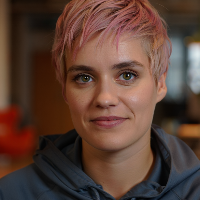Systems Analyst – Basic Course
Systems Analyst – Basic Course is a comprehensive introduction to the profession of systems analysis, designed for absolute beginners and those considering a career change into this dynamic field. This course is ideal for aspiring systems analysts, junior IT specialists, …
Overview
Systems Analyst – Basic Course is a comprehensive introduction to the profession of systems analysis, designed for absolute beginners and those considering a career change into this dynamic field. This course is ideal for aspiring systems analysts, junior IT specialists, business analysts, QA engineers, project managers, and anyone from related domains who wants to understand the role and responsibilities of a systems analyst in modern software development.
Throughout the course, you will learn:
- Who a systems analyst is, what distinguishes them from business analysts, and where they work (product teams, outsourcing, consulting).
- The importance of systems analysis in software development and the analyst’s role throughout the software development lifecycle.
- The different types of requirements (business, user, system), methods for gathering and documenting them, and how to avoid common mistakes.
- How to model business processes using notations like BPMN and IDEF0, and how to create clear, effective specifications and documentation (BRD, SRS, Vision, live specs).
- The basics of diagramming (BPMN, UML, ERD), data formats (JSON, XML, YAML), and the main tools used by analysts (Miro, Draw.io, Figma, Confluence, Jira, Notion).
- The fundamentals of SQL for analysts, and how to interact effectively with development and QA teams, including in Agile environments.
- Key concepts in software architecture relevant to analysts, including client-server architecture, HTTP basics, backend/frontend, databases, feature lifecycle, and CI/CD.
- API and integration basics (REST, SOAP, Webhook), how to document APIs, and how to coordinate data formats and protocols.
- The complete project journey: from idea to specification, and how analysts prevent bottlenecks in the process.
By the end of the course, you will:
- Understand the full scope of a systems analyst’s work and the skills required to succeed.
- Be able to gather, document, and manage requirements using industry-standard techniques and tools.
- Model business processes and write clear specifications that support development and testing.
- Communicate effectively with stakeholders, developers, and testers, and understand your place in Agile teams.
- Grasp the basics of IT architecture, data formats, and API documentation, enabling you to bridge the gap between business and technology.
This course will empower you to take your first confident steps in systems analysis, build a strong foundation for further learning, and make an informed decision about your future in IT.
Curriculum
- 7 Sections
- 31 Lessons
- Lifetime
- Introduction to Systems Analysis4
- Requirements Gathering and Documentation5
- Business Process Modeling4
- Documentation and Specification Writing4
- Working with Teams and Agile4
- IT Basics for Analysts6
- API, Integrations, and Project Flow4








